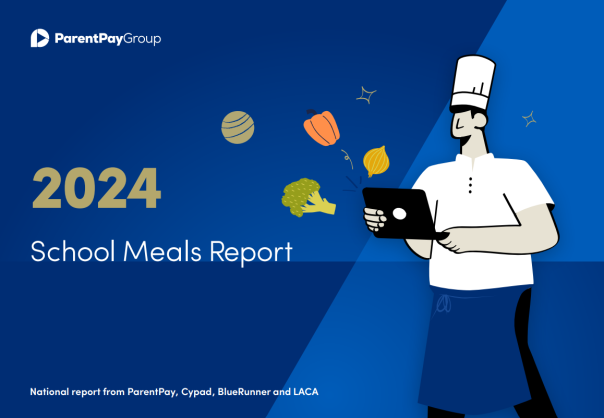
Both figures have increased since the 2023 report. School meals continue to be valued by most parents for providing a hot meal for their children and for being convenient.
Anita Brown, chair of LACA, commented: “LACA’s core objective to ensure that all children and young people should be able to access, and benefit from, a freshly prepared, nutritious, and balanced hot meal at lunchtime, is the main reason for parents and carers choosing school meals daily or a mix during the week.
“It is encouraging that 87% of pupils are having a school meal at least once per week. Having a meal in school also provides support for families, with convenience also cited as a key factor for choosing a school lunch. With 93% of respondents valuing the impact of the school meal on their child’s quality of life, this reflects the importance of the school meal service across the UK.”
The ParentPay Group report aims to understand parents’ views on the school meal service to support school caterers in making informed decisions on their catering operation.
The top three factors that would encourage increased school meal uptake are a wider selection of meals, better quality or more appetising meals and a lower cost per meal. Over two-fifths (41%) of parents in the UK are paying more than £2.80 a day on average for their children’s school meals.
The majority of parents across primary and secondary schools said they liked the idea of being able to use a system that allowed them to pre-order meals ahead of time. Only 7% of secondary school parents currently have the option for them or their child to pre-order meals, compared to 68% who would like to be able to.
A surveyed parent added: “The school thoroughly label the food and allergens online on the school meals menu. I feel safe sending my daughter to school knowing she knows what she can and can’t eat.”
The majority of parents (87%) who are eligible for free school meals make use of them, which is a one percentage point drop from the 2023 report. According to the research, 62% stated that they improved their quality of life.
Under a third (31%) of respondents said they felt that free school meals doesn’t improve their quality of life due to small portion sizes, poor nutritional value and the free school meal spend not covering the cost of a hot school meal.
Keith Bell, managing director for ParentPay Group’s Catering and Payments business units, said: “With this research now in its fourth year, it’s fantastic to see the ongoing high levels of engagement from parents and caregivers across the UK with this subject – they clearly recognise the positive effect school meal provision has on setting children up to learn and succeed.
"This research is designed by ParentPay Group to help school caterers understand what the parents want from their children’s school meals, providing information to caterers to help increase school meal uptake.”
The report recommends four actions:
- Communicate information on school food standards and healthy eating regulations to parents and carers to enable a greater understanding on portion sizes and the nutritional value of school meals.
- Share information with parents and carers on how allergens and special diets are managed in your schools.
- Introduce meal pre-order systems, which helps ensure that each pupil receives the meal of their choice and encourages communication about food between parents and carers and their children when choosing meals.
- Encourage a whole school approach to food, considering areas such as breakfast provision, food waste, local food, cooking activities, nutrition education and sustainability.
Access the full report below.